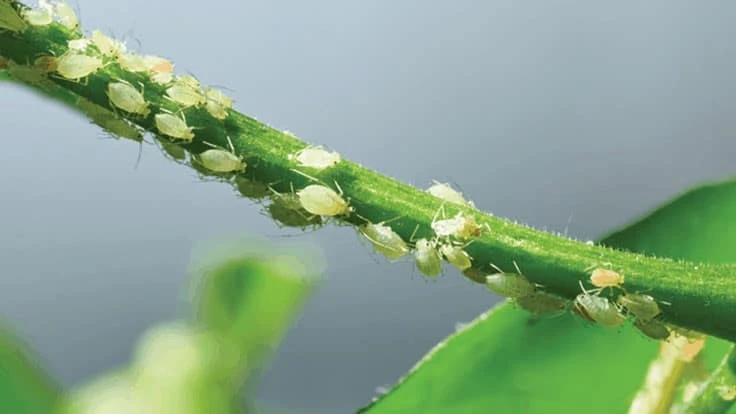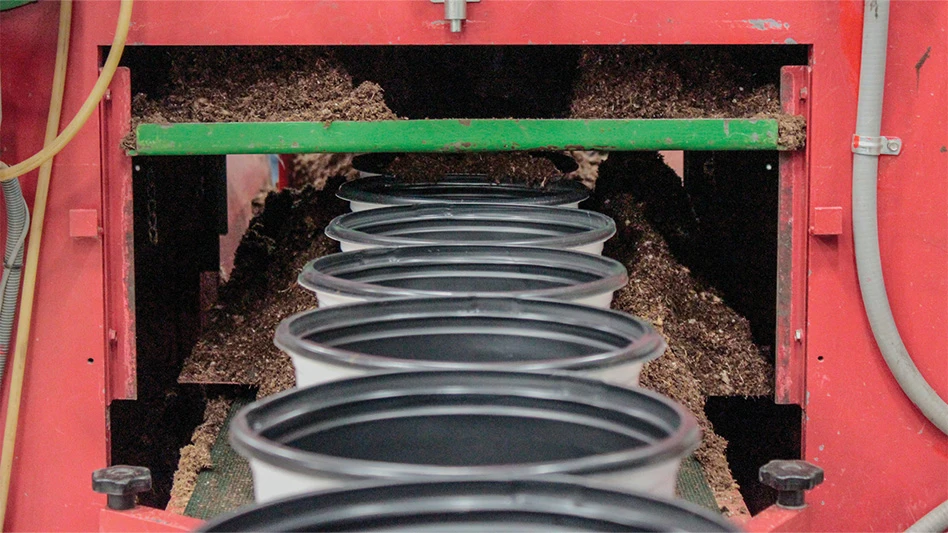

As winter and early spring conditions continue to trend warmer with above average moisture, ornamental growers will likely see increased pressure from many problematic insects, including spider mite pests.
“Mites, especially spider mites, can be very destructive to ornamental crops,” says Carlos Bogran, technical manager at OHP. “Even at relatively low densities, they may cause discoloration of lower leaves, visible stippling damage and reduce plant vigor. At higher densities they may cause defoliation and poor-quality plants that often cannot be sold right away.”
OHP in Bluffton, South Carolina, is a leading provider of crop protection solutions for the greenhouse and nursery industries. According to Bogran, it’s suite of horticultural miticide products that “help prevent crop damage and quality losses. And help control outbreaks when they occur, to avoid problems in surrounding crops.”
Targeting all life stages
Since pest infestations are not typically linear, meaning a grower can experience multiple infestations that are at different stages of the mite life cycle at the same time, having broad spectrum activity against all the life cycles is an important facet of any growers’ IPM strategy.
OHP miticide solutions fit perfectly into that game-plan, according to Bogran.
“Notavo is an ovicide with long residual activity, and it features a proprietary formulation that may be used to visualize and check spray coverage,” he explains. “Shuttle O and Floramite SC are very effective against all other life stages, while still being safe on natural enemies that many growers use for biological control, including predatory mites.”
Additionally, OHP’s neem-oil based Triact 70 features multiple modes of control while minimizing the risk of active ingredient resistance development, while Sirocco is another broad-spectrum option that is also effective against insect pests.
New for 2020
OHP launched two new OMRI-approved active ingredient formulations for mite control in 2020 in Ancora and Pycana, according to Bogran.
“Ancora is a microbial insecticide that contains a fungus that colonizes and kills spider mite eggs,” he says. “While Pycana is an insecticide/miticide that contains refined canola oil, with less risk to crops and, again, less risk of resistance development.”
IPM pointers
Asked his top management tips for growers dealing with mite infestations in the greenhouse, Bogran advises these three key management practices:
Timely applications with great spray coverage. “Most of the issues I see in failures of control are due to poor coverage when pest densities are high,” he adds.
Use a physical mechanical tool like oil products to minimize the risk of resistance development.
Use products that are active against all life stages of the pest, including the eggs.
“Many miticides do not work against all life stages, and when conditions are right, spider mites can reproduce extremely fast.”
Get curated news on YOUR industry.
Enter your email to receive our newsletters.

Explore the September 2020 Issue
Check out more from this issue and find your next story to read.
Latest from Greenhouse Management
- The HC Companies, Classic Home & Garden merge as Growscape
- Eason Horticultural Resources will now officially be known as EHR
- BioWorks receives EPA approval for new biological insecticide for thrips, aphids, whiteflies
- ScottsMiracle-Gro transfers cannabis subsidiary to focus on core lawn and garden business
- Ellen Mackenbach-Lakeman appointed new CEO of Dümmen Orange
- Southern Garden Tour sets 2025 dates for trial garden open houses
- Belgian thermal screen manufacturer Phormium launches Noctis Thermo
- New book explores plants that thrive in Rocky Mountains






